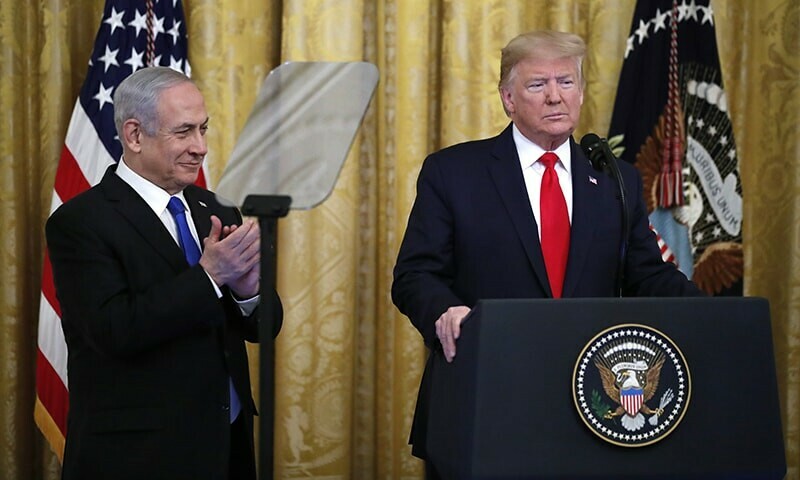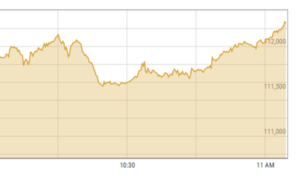For more than a year, the United States has steadfastly backed Israel in its invasion of Gaza while quietly counselling restraint on occasion. With Donald Trump’s return, the little nuance present will vanish, although his hunger for deal-making makes him less predictable.
Trump, unlike every other recent president, has not even paid lip service to a fully sovereign, independent Palestinian state.
He leads a Republican Party so pro-Israel that some local offices handed out Israeli flags alongside Trump yard signs — a far cry from President Joe Biden, whose support for Israel faced fierce criticism from the left of his Democratic Party.
And while Biden’s two ambassadors to Israel were Jewish Americans who would occasionally nudge Prime Minister Benjamin Netanyahu, Trump’s pick is evangelical Christian pastor Mike Huckabee, a former governor who sees biblical reason to champion Israel.
Other Trump nominees include Senator Marco Rubio — a hawk on Iran — as secretary of state, and Representative Elise Stefanik, who made waves by assailing universities’ handling of pro-Palestinian protests, as US ambassador to the United Nations.
“They’re, like, more pro-Israel than most Israelis,” said Asher Fredman, director of the Misgav Institute for National Security and Zionist Strategy, an Israeli think tank.
He expected Trump to take an “America First” approach aimed at reducing US military resources and refocusing on countering China — which means both empowering Israel to fight enemies and encouraging its normalisation with Arab states, notably Saudi Arabia.
“There is really tremendous paradigm-shifting potential in a number of realms, such as advancing regional cooperation and putting maximum pressure on Iran,” Fredman said.
End of Biden’s approach
According to Anadolu agency, while the Biden administration had previously balanced its approach by supporting Israel’s defence against Iran and endorsing a two-state solution, its stance shifted to unwavering support for Tel Aviv after the attacks, despite growing national and international criticism.
During the October 18, 2023 visit to Israel, Biden expressed unwavering support for Prime Minister Benjamin Netanyahu, affirming the US’ solid backing.
Biden sought an additional $17.9 billion in military aid for Israel upon his return, supplementing the annual $3.5bn it already receives.
While Biden issued a memorandum in February requiring Congress to be notified if any US-funded country deliberately blocked humanitarian aid, the administration faced scrutiny for its response to humanitarian concerns in Gaza.
Blinken told Congress in May that Israel was not intentionally preventing humanitarian aid, despite reports from USAID suggesting that Israel was hindering the delivery of food assistance to Gaza.
The State Department’s Bureau of Population, Refugees, and Migration also recommended freezing funds to Israel because of humanitarian concerns, though the calls were ultimately unheeded.
Additionally, Biden’s administration vetoed three UN Security Council resolutions calling for a cease-fire in Gaza, which heightened international criticism.
Biden has also criticised Netanyahu on occasion for the heavy toll on civilians in the relentless war in Gaza and unsuccessfully sought to prevent the Israeli invasion of Lebanon.
But Biden has only once exercised the ultimate US leverage — holding some of the billions of dollars in military aid to Israel — with officials insisting their quiet approach has paid off.
Secretary of State Antony Blinken and Defence Secretary Lloyd Austin in a mid-October letter gave Israel a month to allow more assistance into Gaza or face cutoffs of some US weapons.
They ultimately decided not to take action, despite Israel not meeting metrics on the number of aid trucks and a new UN-backed assessment warning of imminent famine in Gaza.
Blinken told reporters Wednesday that the letter succeeded in injecting a “sense of urgency” to Israel, which addressed 12 of the 15 listed areas of concern.
Allison McManus, managing director for national security and international policy at the left-leaning Centre for American Progress, said the letter had offered an opening but that Biden wanted “near unconditional support” for Israel to be his legacy.
“Biden was very risk-averse — not wanting to rock the boat too much in terms of the traditional US support for Israel,” she said.
“He was dogmatic and quite orthodox in approaching the US-Israel relationship. Trump is, certainly, neither of those things,” she said.
Despite Trump’s stance on a Palestinian state, he has also boasted of seeking historic deals.
“There is certainly a world in which, if Netanyahu is obstinate, as he has been in reaching a ceasefire, then I wouldn’t be surprised if we actually see Trump applying some pressure,” she said.
“What that would look like, I don’t know.”
Deal not easy
Aaron David Miller, a longtime State Department advisor on the Middle East, said that Trump’s previous term showed a foreign policy that was “opportunistic, transactional and ad hoc.”
He said that Huckabee could turn out to be a “performative appointment” for political reasons, as top officials in Washington often work directly with their Middle Eastern counterparts.
But Miller said that even if Trump sought a Gaza deal, he would face some of the same impediments as Biden — the risk of Hamas surviving and the lack so far of a new security architecture.
“He cannot end the war in Gaza and won’t pressure Netanyahu to do so,” said Miller, now at the Carnegie Endowment for International Peace.
Elie Pieprz, director of international relations at the Israel Defence and Security Forum, said that Trump’s victory had already yielded wins for Israel, including Qatar distancing itself from mediating with Hamas and a more conciliatory tone from Iran.
As Biden had a “difficult” relationship with Israel, Trump will likely seek to ease friction, Pieprz said.
“Trump likes to see things in comparison to his opponents,” he said.
Much like his domestic slogan, Pieprz said, Trump wants to “make the US-Israel relationship great again. “







